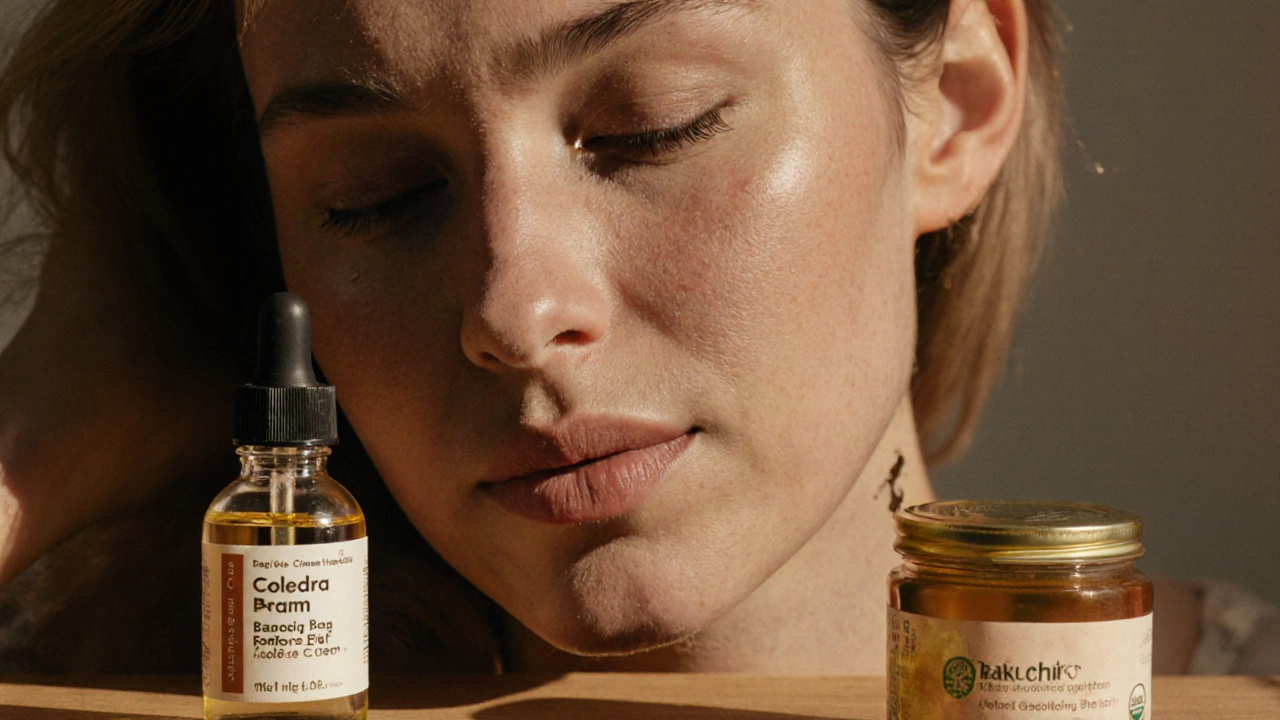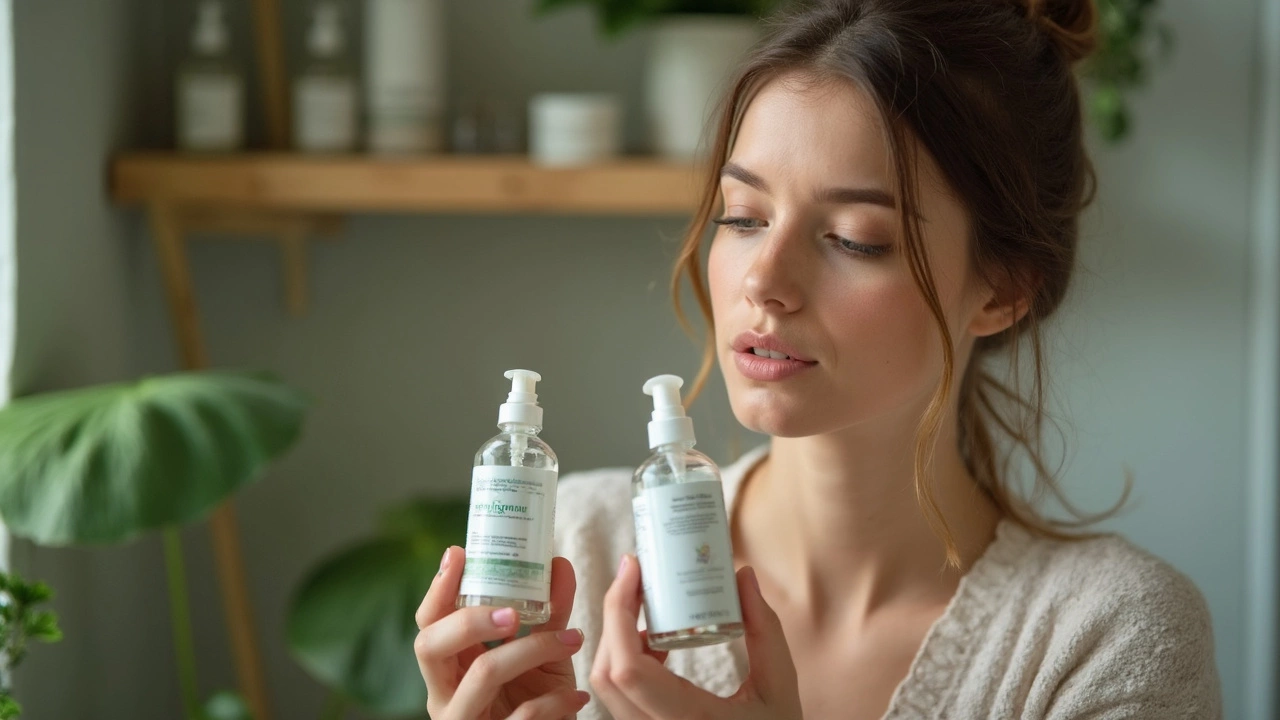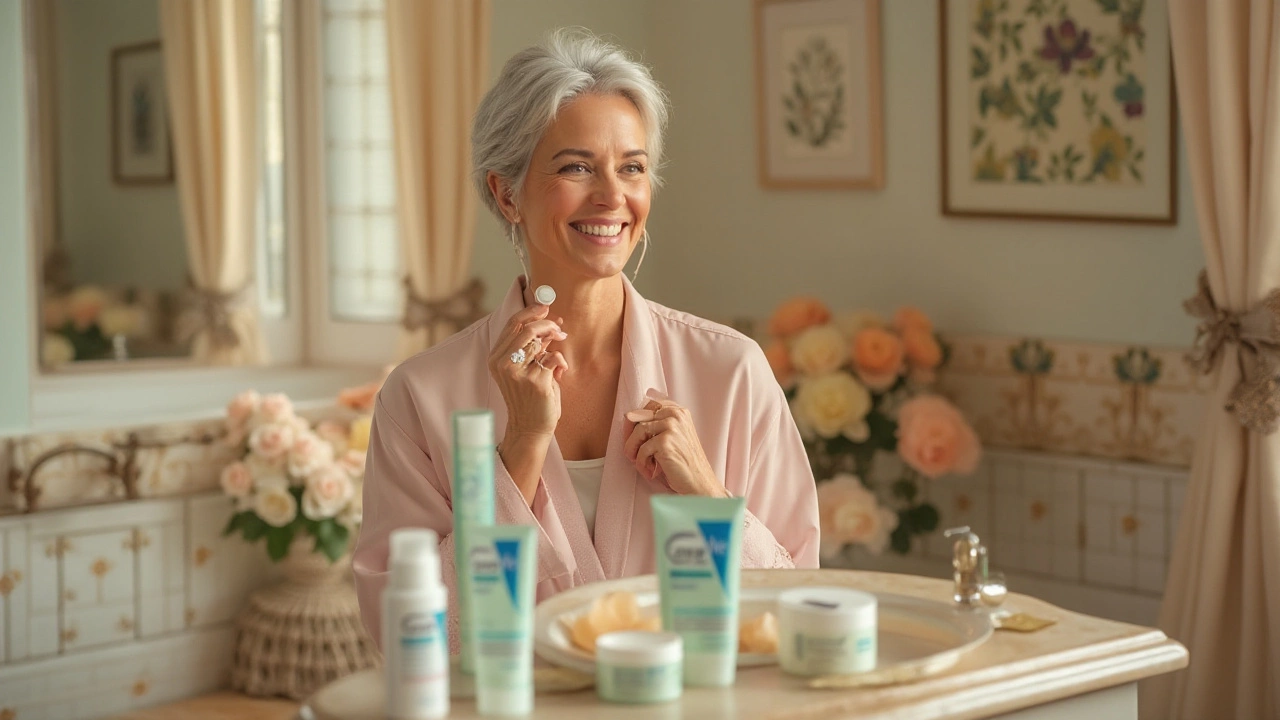Organic Skincare: What It Is and Why You’ll Love It
If you’ve ever wondered what the buzz around organic skincare really means, you’re not alone. In simple terms, organic skincare uses ingredients that are grown without synthetic pesticides, fertilizers, or GMOs. The goal is to give your skin the purest possible care while keeping the environment happy. No fancy jargon here – just skin‑friendly products that avoid harsh chemicals.
Why does this matter? First, many conventional formulas contain parabens, sulfates, and artificial fragrances that can irritate sensitive skin. Swapping to organic alternatives can reduce the risk of redness, breakouts, or allergic reactions. Second, the production methods behind organic crops tend to be gentler on soil, water, and wildlife. So you’re not only looking after your face, you’re also supporting a more sustainable beauty industry.
Simple Steps to Start Your Organic Skincare Routine
1. Read the label. Look for certifications like Soil Association or COSMOS‑standard. These symbols guarantee the product meets strict organic criteria. If you can’t find a badge, check the ingredient list – botanical names with “organic” next to them are a good sign.
2. Start with the basics. A clean, gentle cleanser and a lightweight moisturizer are enough to feel the difference. Brands such as CeraVe and Cetaphil offer versions that use fewer synthetic additives, making them a comfortable entry point if you’re not ready for a full‑on green overhaul.
3. Choose multi‑tasking ingredients. Organic oils like rosehip, jojoba, and argan deliver hydration, antioxidants, and anti‑inflammation all at once. A few drops in your morning moisturizer can boost barrier protection without feeling heavy.
4. Patch‑test new products. Even natural ingredients can cause reactions. Apply a small amount to your jawline for 24 hours before committing to full‑face use.
5. Mind the expiration. Organic formulas often have fewer preservatives, so they may spoil faster. Keep an eye on the opened‑after date and store products in a cool, dark place.
Everyday Practices That Keep Your Skin Organic‑Friendly
Beyond the products you buy, your habits play a big role. Washing your face with lukewarm water instead of scorching hot water helps maintain the skin’s natural oils. When you remove makeup, use a gentle, oil‑based cleanser rather than a harsh scrub – this respects the organic ingredients you’ve applied.
Remember to stay hydrated and eat a balanced diet rich in fruits, vegetables, and healthy fats. Your skin reflects what you feed it from the inside out, so an organic lifestyle makes sense both topically and nutritionally.
Lastly, support local UK brands that source ingredients from nearby farms. Buying locally reduces the carbon footprint of shipping and often means fresher, more potent formulas. Keep an eye out for emerging UK brands that market themselves as clean, cruelty‑free, and organic – they’re often the most innovative.
Switching to organic skincare doesn’t have to be an all‑or‑nothing move. Start with one or two products, notice how your skin reacts, and build from there. Over time you’ll discover a routine that feels good, looks good, and aligns with a greener future. Happy skin, happy planet!
What Are the Best Anti-Aging Products for Real Results?
Discover the best organic anti-aging products that actually work in 2025. Learn which ingredients deliver real results, what to avoid, and how to build a simple, effective routine without expensive or synthetic products.
Read More
Best Natural Wrinkle Reducer: Top Ingredients & Practical Tips
Discover the top natural wrinkle reducers, how they work, and a step‑by‑step routine to smooth fine lines using vitamin C, bakuchiol, rosehip oil, and more.
Read More
Are Organic Products Really 100% Chemical Free?
People often think 'organic' means completely chemical free, especially in skincare. This article breaks down what 'organic' truly means and if organic skin products are really free from chemicals. Get the truth about ingredients, common labels, and how to read them. Find out what to watch for if you have allergies or sensitive skin. Learn how to shop smarter for products that actually suit your needs and lifestyle.
Read More
Is USDA Organic Really Organic? The Truth Behind the Label
Ever wondered if USDA organic really means what you think it does when it comes to skincare? This article digs into what the USDA organic label actually covers for beauty products, explains the process of certification, and points out the loopholes and grey areas. If you’re buying organic lotions, serums, or cleansers, you’ll see why not all certified products are equal. Learn how to tell which ones are worth your trust. Plus, get some tips to help you shop smarter and make the most of truly clean beauty.
Read More
Organic Skincare: Why Switching Makes Sense for Your Skin
Thinking about trying organic skincare? This article digs into what actually sets organic products apart, how synthetic chemicals could be messing with your skin, and what to look for if you want to make the switch. There's real talk about common ingredients, industry secrets, and ways to spot legit organic products. Get practical tips for easing into a cleaner routine without the overwhelm or hype.
Read More
Discovering the Most Non-Toxic Makeup Brand
Finding non-toxic makeup brands can be overwhelming, but with a focus on ingredients and eco-friendliness, you can make an informed choice. Check out the top brands that prioritize safety and sustainability. Learn how to decipher ingredient lists and discover tips for choosing the best products. Embrace a beauty routine that's kind to your skin and the planet.
Read More
What's the Best Organic Skincare Line for Women Over 50?
Choosing the right skincare can feel like a maze, especially when you're over 50 and want everything to be organic and natural. This article dives into what really makes a skincare line stand out for those embracing their fabulous fifties and beyond. From understanding why organic ingredients work better on mature skin to highlighting the top brands and what makes them tick, we’ve got it covered. Plus, some insider tips on keeping skin radiant and healthy without the harsh chemicals.
Read More
Is CeraVe Skincare Ideal for Those Over 50?
Navigating skincare after 50 can be challenging, especially with the abundance of products on the market. This article explores if CeraVe skincare products are suitable for individuals over 50, focusing on ingredients, benefits, and user experiences. Whether aiming for hydration, anti-aging, or restoring skin barrier health, it's crucial to understand how these factors contribute to mature skin wellness. By analyzing customer feedback and expert opinions, one can determine whether CeraVe meets the unique needs of aging skin.
Read More
Understanding Organic vs. 100% Organic Skincare Products
Discover the key differences between organic and 100% organic skincare products. This guide delves into the specifics of natural ingredients, certification processes, and how these products benefit your skin. We will explore the different regulations for labeling and what they mean for your skincare routine. You'll also find tips on how to choose the right product for you. Whether you're a seasoned user or new to organic skincare, this will help you make informed decisions.
Read More








